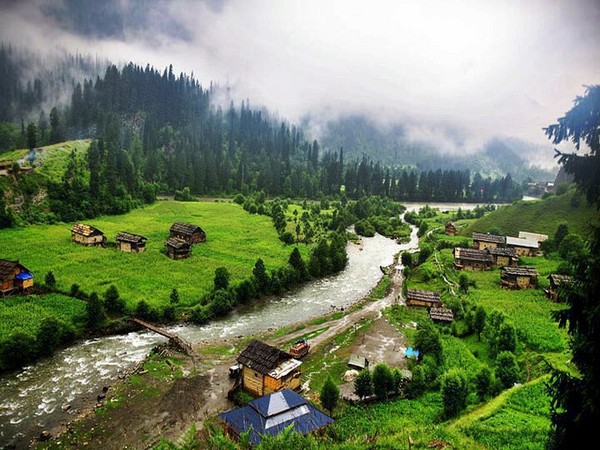
New Delhi: India has a unique opportunity to lead the way in eco-tourism, setting itself apart from regions like Europe that have faced the consequences of mass tourism. With vast potential largely untapped, India's tourism sector stands poised for growth, particularly through eco-tourism initiatives.
The industry experts emphasized the urgent need for sustainable tourism in India amid the global shift towards sustainability in travel, spurred by concerns over carbon footprint, water consumption, and pollution.
"We have a unique advantage that our sites and destinations have not been destroyed or distorted by mass tourism the way we see in some places in Europe and other parts of the world. Our travel has to have minimal or zero carbon footprint, water consumption has to be within manageable limits," said Ram Pratap Singh, eco-tourism entrepreneur, to ANI.
He said, "The chemicals and pollutants that are generated by the travel and tourism industry, the hotel industry, have to be controlled and converted into green affluence. And then the impact on the community, the people, it has to generate wealth and well-being"
The Ministry of Tourism has recognized the potential of sustainable tourism and formulated a 'National Strategy for Sustainable Tourism' to mainstream sustainability in the sector. Initiatives like the "Travel for LiFE" campaign aims to encourage responsible behaviour among domestic tourists, promoting mindful resource consumption while traveling.
Recent tourism data indicates a positive trend for India. In December 2023, over 10.7 lakh foreign tourists visited India, contributing a significant Rs 24,707 crore to the country's foreign exchange.
However, the number of foreign tourist visits has declined in recent years, from 31.41 million in 2019 to 8.59 million in 2022, due to changing travel behaviours post-pandemic.
Despite this decline, eco-tourism presents an opportunity to attract foreign tourists back to India by offering sustainable travel experiences. With its pristine sites and destinations relatively untouched by mass tourism, India is well-positioned to capitalize on the global trend towards sustainable tourism.
According to industry experts, some of the famous Eco- tourism destinations in India are Sikkim -India's first fully organic state, Mawlynnong (Meghalaya)- one of the cleanest villages in Asia, Majuli in Assam, Matheran in Maharashtra and Thenmala (Kerala)- India's first ever eco-tourism destination.
As discussions on climate sustainability continue on the global stage, India stands at a crucial juncture to embrace sustainability in tourism. By seizing this opportunity, India can emerge as a leader in sustainable tourism, preserving its natural and cultural resources for future generations while fostering economic growth and community well-being.